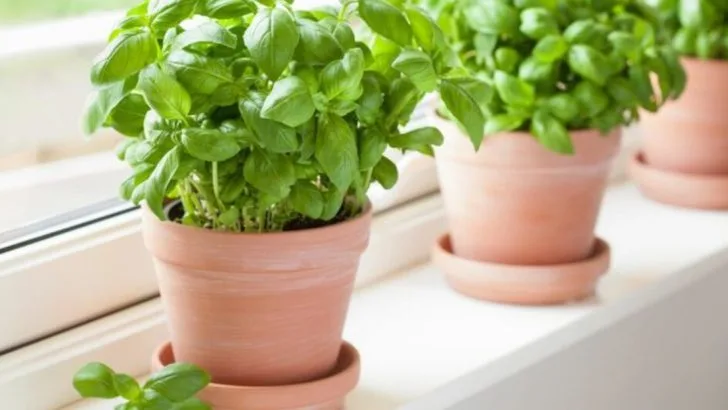Imagine having fresh, aromatic herbs at your fingertips all year round—no garden required! Growing herbs on a windowsill is a simple and rewarding way to bring flavor, fragrance, and greenery into your home, even if you have limited space.
With the right combination of sunlight, well-draining soil, and proper care, you can successfully cultivate basil, mint, rosemary, thyme, and more indoors. Whether you’re an experienced gardener or a complete beginner, setting up a thriving herb garden on your kitchen or living room windowsill is easier than you think.
Discover the best herbs to grow, essential care tips, and common mistakes to avoid so you can enjoy homegrown herbs in your cooking, teas, and natural remedies all year long!
Basil
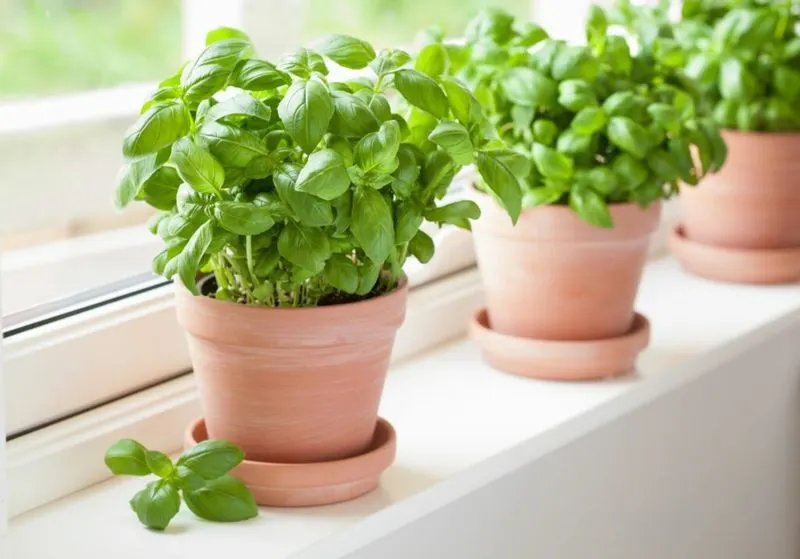
Basil’s delightful aroma and flavorful leaves make it a staple in many kitchens. This herb thrives in warm, sunny spots, such as a south-facing windowsill. Regular trimming encourages bushy growth and ensures a continuous supply of fresh leaves for your culinary creations. Occasionally, a gentle misting helps maintain the humidity basil craves. A fun fact: basil is not only delicious but also believed to symbolize love in some cultures. So, while you’re nurturing your basil, you’re also growing a little love on your windowsill.
Mint
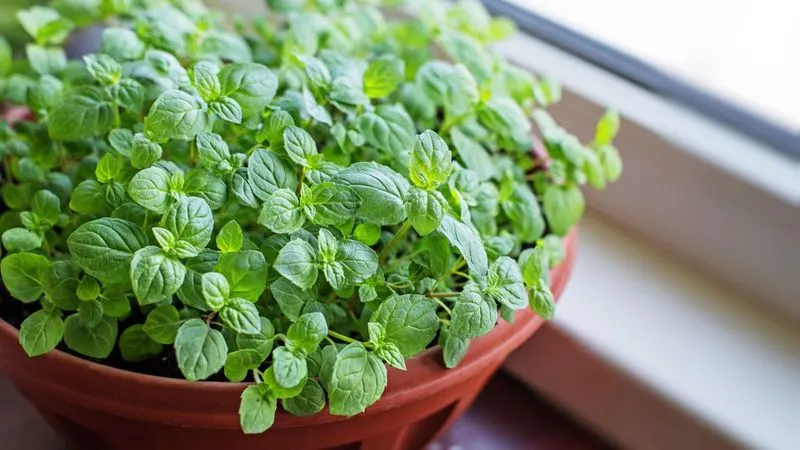
Mint is known for its refreshing scent and versatility, perfect for teas or garnishes. It’s a low-maintenance herb that prospers in partial sunlight. Keep the soil moist but not waterlogged, as mint prefers a damp environment. Its rapid growth might surprise you, so regular trimming keeps it under control. Did you know? Mint has been used historically for its medicinal properties, providing a natural remedy for minor digestive issues. Having a mint plant nearby is like having a tiny apothecary on your windowsill.
Parsley
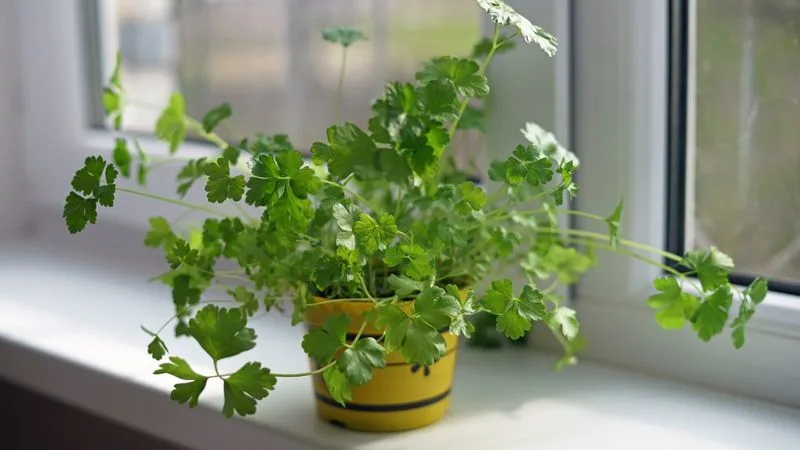
Parsley offers a burst of freshness to any dish and grows beautifully in a sunny windowsill garden. This herb requires moderate watering and appreciates well-draining soil. Curly or flat, parsley is a nutrient powerhouse, rich in vitamins A and C. Fun fact: the ancient Greeks considered parsley sacred, using it to adorn victors of athletic contests. As you tend to your parsley, you’re participating in a tradition that spans centuries, bringing a touch of history to your home.
Rosemary
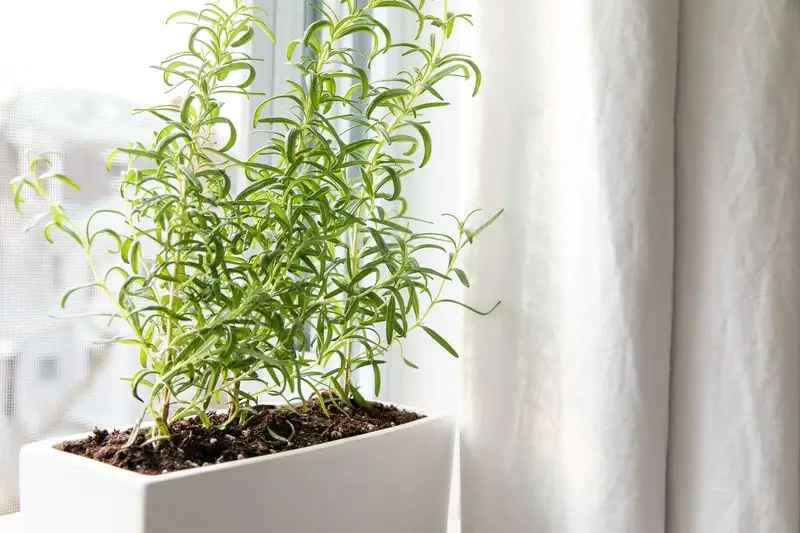
With its robust aroma and needle-like leaves, rosemary adds a Mediterranean flair to your indoor garden. It appreciates a sunny spot and prefers dry, well-drained soil. Water sparingly, allowing the topsoil to dry out between watering sessions. Rosemary’s strong flavor complements meats and roasted vegetables. Interestingly, rosemary has been associated with memory enhancement since ancient times. So, as you nurture your rosemary, you might just be boosting your brain power!
Thyme
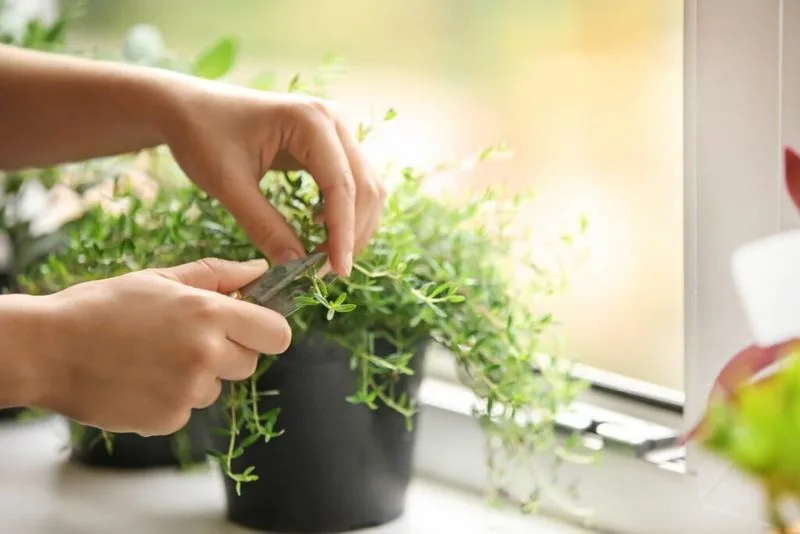
Thyme is a hardy herb that brings a subtle earthiness to your dishes. It prefers bright light and tolerates dry conditions, making it an easy choice for busy individuals. Ensure the soil is well-drained and avoid overwatering. Thyme’s small leaves pack a punch of flavor, perfect for soups and stews. Historically, thyme was believed to bring courage to warriors. As you watch your thyme flourish, perhaps it’ll inspire you with a little bravery in your culinary adventures.
Chives
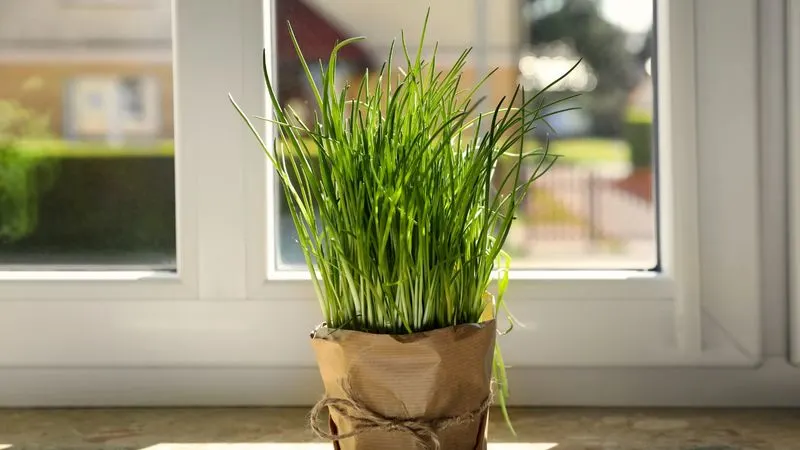
Chives, with their mild onion flavor, are a delightful addition to any kitchen garden. They thrive in sunny spots and require minimal care. Regular trimming not only promotes growth but also provides you with fresh garnish options. The hollow green stalks are perfect for sprinkling over baked potatoes or salads. Did you know? In ancient times, chives were believed to impart strength and courage. So, each snip of your chive plant might just be a little boost of fortitude for your day.
Cilantro
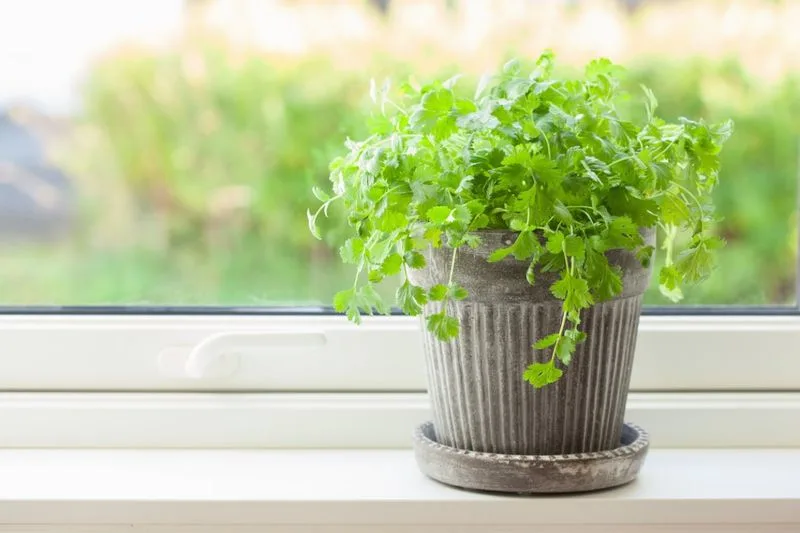
Cilantro, with its bright and zesty flavor, is a favorite in many cuisines. It enjoys sunlight but doesn’t mind a bit of shade, adapting well to varying conditions. Keep the soil moist without drowning the roots. Cilantro’s distinct taste can be polarizing, yet it remains popular worldwide. Fun fact: cilantro is also known as coriander in many parts of the world, highlighting its dual identity. As you cultivate cilantro, you’re not just growing a herb, but embracing a global culinary tradition.

